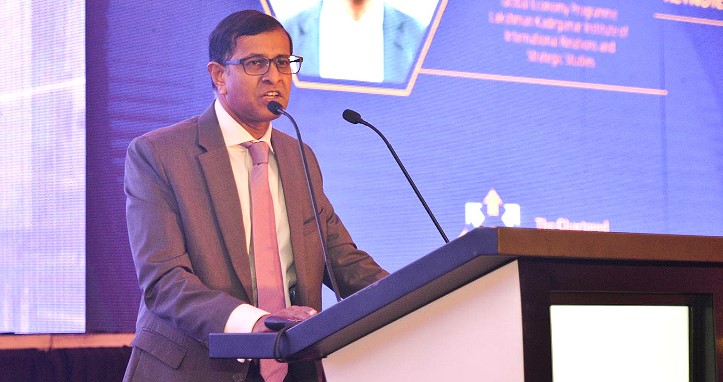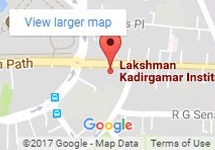
Reading Time: 2 min read
Dr. Ganeshan Wignaraja, Chair of LKI’s Global Economy Programme (supported by Dilmah), delivered a keynote lecture at the Chartered Institute of Transport and Logistics Conference 2017 on “Disruptions in Asia’s Global Supply Chains” on 3 October 2017. The theme for this annual landmark event for the logistics & transport industry was “The Age of Disruption – A Reality Check on Logistics and Transport.”
Dr. Wignaraja’s lecture explored components of Global Supply Chains (GSC), the possible development of GSCs in Asia, strategies for new entrants, and emerging disruptions that may materialise in GSCs. The key takeaways from the lecture are:
- GSC trade, with East Asia as its hub, is an increasingly important part of world trade.
- Global economic and political uncertainties, as well as the increasing complexity of GSCs, have increased the risk factors.
- However, China’s restructuring means opportunities continue to arise for Sri Lanka and other latecomers to GSC trade.
- East Asia’s experience suggests that one size does not fit all for new entrants.
- Experience suggests that new entrants should:
- Undertake smart business strategies and industrial clustering
- Ensure sound macroeconomic management and credible policies
- Improve trade logistics, invest in infrastructure, and deepen reforms
- Carefully design and manage FTAs with major markets
- In an increasingly unstable world, major disruptors to GSCs include technology (e.g. robotics and AI), natural disasters, and political instability/terrorism.
- Businesses and governments need to study these risks to GSC trade and formulate coherent strategies to mitigate them.
The lecture was followed by a speech by Hon. Dr. Harsha De Silva, Deputy Minister of National Policies and Economic Affairs, and a panel discussion featuring Dr. Robert De Souza, Executive Director of The Logistics Institute Asia Pacific; Thilan Wickramasinghe, CEO of Create Lab; Ahmed Irfan, CEO of Innovation Quotient; and Tilak Dissanayake, an engineer.
The panel discussion focused on the spillover effects of technology disruptions and how organisations can better equip themselves to adapt to these changes. The discussion was moderated by the Editor-in-Chief of the Daily FT, Nisthar Cassim. The event drew a diverse group of over 200 participants, including sectoral experts, industry practitioners, government officials, high-profile corporate executives, academics, and media.



